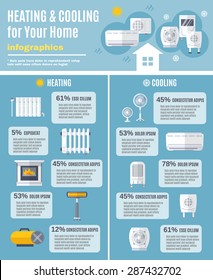Heat Pump Vs Heating System - Which Is The Better Heating Alternative For Your Home?
Heat Pump Vs Heating System - Which Is The Better Heating Alternative For Your Home?
Blog Article
Authored By-Huynh Niebuhr
Lots of homeowners are familiar with furnaces, which warmth homes with oil or natural gas and push hot air with ductwork. They are fairly inexpensive and can provide trusted home heating even throughout a wintertime power interruption.
Nonetheless, they make use of nonrenewable fuel sources and generate carbon monoxide gas and other air contamination. https://www.mccourier.com/%EF%BB%BFnew-market-study-on-hvac-maintenance-service-market-2021-future-challenges-production-demand-analysis-and-outlook-to-2028-carrier-corporationtoshibamitsubishi-group/ as energy-efficient as a high-efficiency heat pump.
Price
Generally, heat pumps are much more affordable to operate than heating systems. They commonly utilize electrical power and refrigerant to remove heat from outdoor air, and afterwards transfer it right into your home. You can take advantage of less costly power rates throughout off-peak hours to even more lower your heating costs.
Unlike heat pumps, gas or wood-burning furnaces make use of burning to generate warm, producing flue gases into the atmosphere that can be damaging to your wellness. These heaters are likewise less energy-efficient than heat pumps, and their higher operating costs can accumulate over time.
Heating systems are a lot more complicated than heat pumps and call for regular maintenance to ensure the proper feature of all components. In spite of this, they often tend to last longer than heat pumps with a common life-span of 20 years or more. Nonetheless, you'll need to consider the cost of gas, gas oil or wood and the added devices needed for setup and operation such as air ducts and air flow systems.
Power Performance
Heatpump have a greater power performance score than heating systems. These systems use electrical energy to scavenge warmth from the air, even in freezing temperature levels. They can also remove excess warm from the home throughout warmer months and reuse it to cool down the system. Provider experts can assist you figure out the very best design for your home based on climate and source power costs.
Furnaces shed fuel oil, gas, gas or other kinds of fossil fuel to heat the air in the home. This air is after that dispersed with ductwork using a big follower. Heaters produce greenhouse gases and need normal maintenance and equipment upgrades to make sure risk-free procedure.
The largest advantage of a heater is that it can be run even in harsh winter months conditions since it does not rely upon exterior temperature levels to heat the air. Heaters likewise have a longer lifespan than heat pumps and generally last 15 years. They can additionally be paired with dual gas options, which choose one of the most efficient home heating choice based upon the weather.
Environment
Heatpump work well in modest environments and utilize less resource power than heating systems. Nevertheless, if your area is incredibly chilly, you might require to purchase a common gas heater rather.
Heating systems supply warm, comfy heat and normally supply rapid home heating to elevate indoor temperatures. These systems can be made use of with a variety of fuel kinds, including natural gas, propane, oil or power.
They consume a lot more power than heat pumps-- approximately 3x as much-- and call for ductwork that's pricey to install or retrofit. They're also more expensive to keep, as they can trigger air high quality concerns and generate greenhouse gas emissions.
If you're dedicated to lowering your carbon impact, a heat pump is a great choice for your home. They have less greenhouse gas discharges than heaters, specifically if you pick an ENERGY STAR ® heatpump. Your regional Provider expert can clarify the differences between these two heating systems and aid you make the most effective decision for your special requirements.
Individual Preferences
Furnaces can be extremely power effective when powered by natural gas, propane or oil, but they aren't as energy reliable as heatpump in freezing climates. They can also be extra pricey to install, requiring gas lines and ventilation systems.
However, heaters often tend to need much less upkeep, which can lead to lower ongoing costs. They produce fewer greenhouse gases and are extra reputable than heatpump during extreme weather condition.
Electric heatpump are extra flexible in producing interior comfort because they can also serve as a/c unit throughout warmer months. They can be easier to keep, calling for just routine air filter adjustments and occasional vacuuming.
If you prefer the convenience of a single system that does it all, take into consideration a crossbreed home heating service that pairs a heating system with an electric heatpump. These systems can immediately switch in between both heating options based on your home's requirements and temperature problems, making the most of efficiency and financial savings.